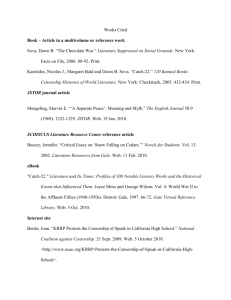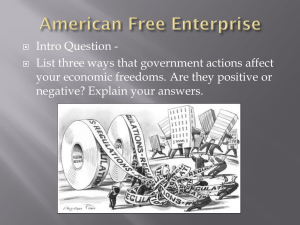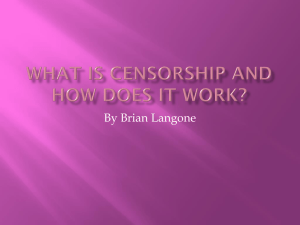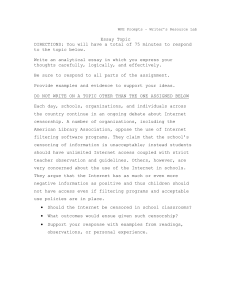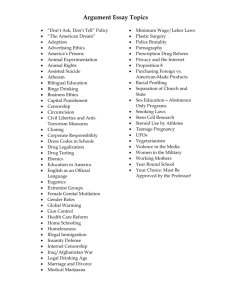What is the statement Catch-22 makes regarding censorship and information control
advertisement
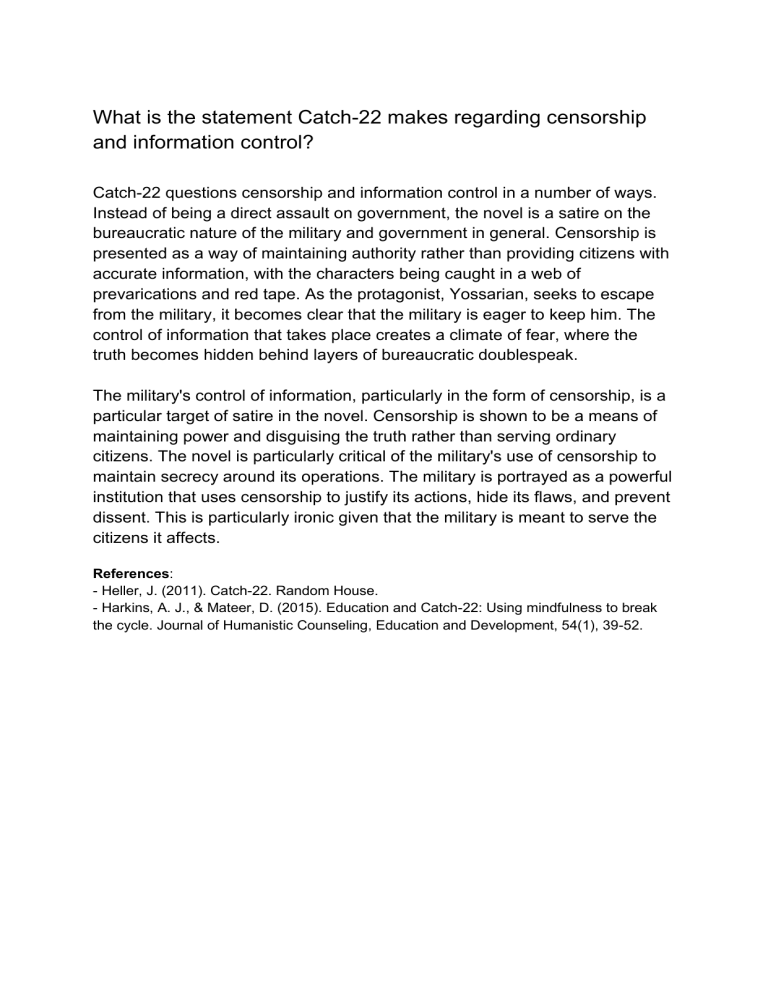
What is the statement Catch-22 makes regarding censorship and information control? Catch-22 questions censorship and information control in a number of ways. Instead of being a direct assault on government, the novel is a satire on the bureaucratic nature of the military and government in general. Censorship is presented as a way of maintaining authority rather than providing citizens with accurate information, with the characters being caught in a web of prevarications and red tape. As the protagonist, Yossarian, seeks to escape from the military, it becomes clear that the military is eager to keep him. The control of information that takes place creates a climate of fear, where the truth becomes hidden behind layers of bureaucratic doublespeak. The military's control of information, particularly in the form of censorship, is a particular target of satire in the novel. Censorship is shown to be a means of maintaining power and disguising the truth rather than serving ordinary citizens. The novel is particularly critical of the military's use of censorship to maintain secrecy around its operations. The military is portrayed as a powerful institution that uses censorship to justify its actions, hide its flaws, and prevent dissent. This is particularly ironic given that the military is meant to serve the citizens it affects. References: - Heller, J. (2011). Catch-22. Random House. - Harkins, A. J., & Mateer, D. (2015). Education and Catch-22: Using mindfulness to break the cycle. Journal of Humanistic Counseling, Education and Development, 54(1), 39-52.
